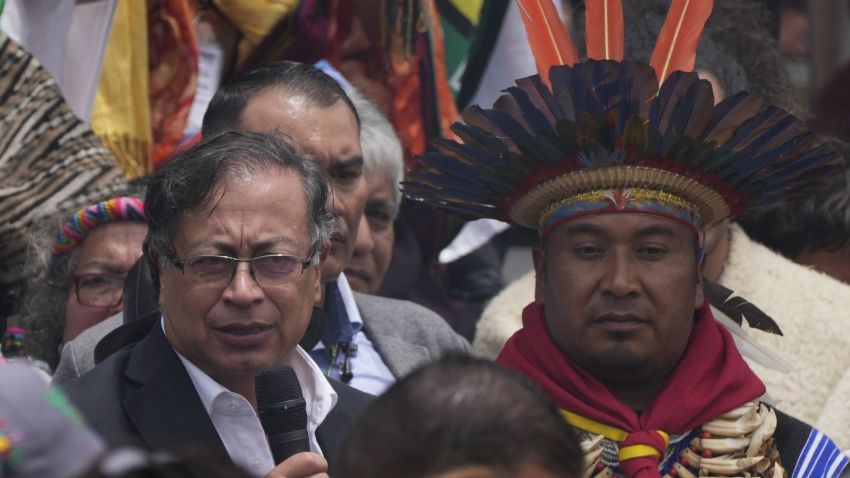On Aug. 7, a multi-ethnic and socially diverse national and international crowd poured into Bogota’s Bolivar Plaza to witness the historic inauguration of modern Colombia’s first leftist president, Gustavo Petro, and its first Afro-Colombian and woman vice president, Francia Marquez. The Cimarrona and Indigenous guards—ethnic self-protection organizations—kept watch while Afro-Colombian women and others sang, danced and played traditional drums and instruments. More than 100,000 people attended the ceremony, while many more flooded public parks throughout the country.
Unlike any previous change of administration in Colombia, flags representing the country’s ethnic, gender and political diversity were everywhere, including LGBTQ, feminist and pan-African groups; multiple Indigenous movements; as well as trade unions and the Communist Party. The atmosphere was ripe with celebration, full of hopes for a new beginning following former President Ivan Duque’s administration, which sent the country backward in terms of peace and human rights, as well as generalized and police violence.
Many of the groups present for the inauguration were central to Petro’s election victory in June. However, Petro now faces the enormous challenge of meeting their expectations and making good on the campaign promises he made to gain their support, while at the same time having to appease opponents and international naysayers in a polarized country.

